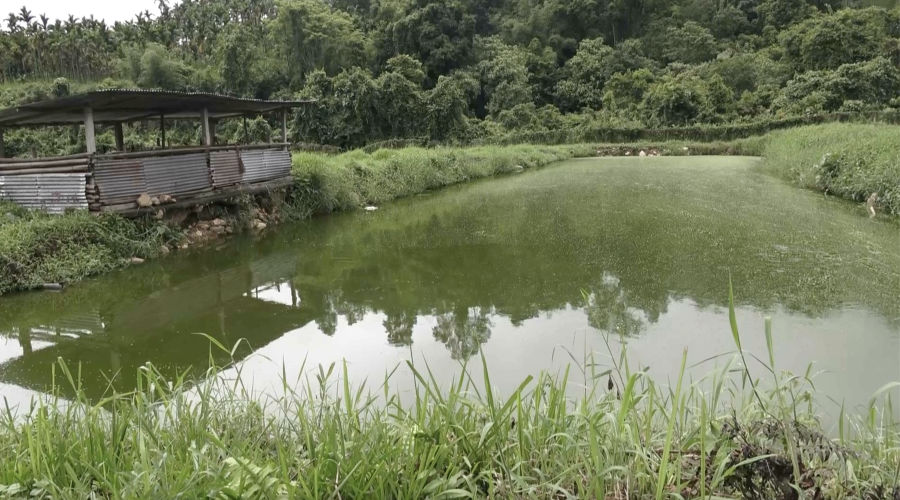 Tashithang Fishery Farm, once a promising youth-led project in Umling Gewog, Sarpang, is now struggling to stay afloat. Though the ponds are full of fresh fish, the market has dried up. Local meat vendors in Gelephu have stopped buying, saying the fish is too expensive with a very short shelf life.
Tashithang Fishery Farm, once a promising youth-led project in Umling Gewog, Sarpang, is now struggling to stay afloat. Though the ponds are full of fresh fish, the market has dried up. Local meat vendors in Gelephu have stopped buying, saying the fish is too expensive with a very short shelf life.
Nestled in the serene valley of Tashithang under Umling Gewog in Sarpang, the fishery once buzzed with promise.
Started in 2021 by a group of unemployed youth, the Tashithang Fishery Farm was envisioned as a model of rural entrepreneurship.
Backed by a financial support of Nu 1.4 M from the National Research & Development Centre of Aquaculture, the farm was built on 10 acres of fallow land with ten fish ponds. Four different fish species, Grass Carp, Common Carp, Mrigal, and Catla, thrive here. But while the ponds are full, there are no buyers.
“I haven’t been able to sell my fish in Gelephu town for the past two years. Last year, no one placed any orders. When I asked the vendors why, they told me that fewer customers come looking for fish and that mine doesn’t stay fresh for long and spoils quickly, which makes it hard for them to keep,” said Tshering Dema, Tashithang Fishery Farm, Umling Gewog.
Local meat vendors in Gelephu say they no longer buy fish from Tashithang Fishery Farm due to high prices and poor shelf life. They claim that local fish is often delivered without proper preservation, unlike imported fish, which is transported in ice boxes and lasts much longer.
“They charge us Nu 350 per kilogram, and we have to arrange our own ice to keep the fish fresh. Sometimes, the fish is already starting to spoil when it arrives from the farm. Even the fish we buy fresh starts to go bad by the next day. That’s why we no longer keep their fish,” said Vijay Pradhan, Meat Shop Owner.
“The price of local fish is quite high. We usually ask for 40 to 50 kilograms, but they insist we take 100 to 150 kilograms. We can’t store that much, and without ice, we end up throwing away 30 to 40 kilograms due to spoilage, which causes huge losses. If they could supply smaller quantities, we’d be more willing to stock local fish,” said Momahad Firoz, Meat Shop Owner, Gelephu.
Tshering Dema says she cannot afford to sell her fish at the lower prices offered by local meat vendors, as it would lead to losses. She explains that the cost of fish feed and labour is high, and it’s difficult to find Bhutanese workers due to religious sentiments associated with fish farming. She hopes the relevant authorities will allow her to hire Indian workers from across the border to support the farm.
“Unfortunately, there hasn’t been much interest from Bhutanese people to work at the farm. Social beliefs play a big role; many see this kind of work as sinful, which discourages even those who might be willing. I reached out to a labour agent to hire just a few workers for basic handling tasks, but I was told that labour permits are only granted for construction work, not for farms like ours,” said Tshering Dema, Tashithang Fishery Farm, Umling Gewog.
Tashithang Fishery Farm, with ten ponds and a harvest of 1,500 kilograms last year, has great potential. But without a steady market and cold storage, much of the fish remains unsold. Still, Tshering Dema remains hopeful. With policy support and better infrastructure, she believes her farm, just five kilometres from Umling Gewog Office, can thrive again, especially with the upcoming Gelephu Mindfulness City Project.
Karma Wangdi, Gelephu
Edited by Passang Dorji







